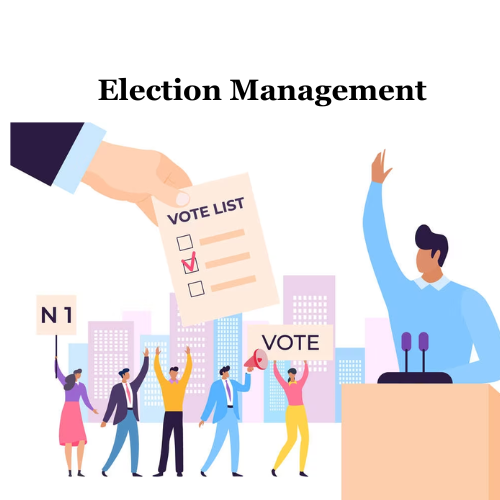With the advent of technology, political parties and candidates are leveraging various tools to reach out to voters effectively. One such tool gaining prominence is interactive voice response (IVR) calling services. This blog explores the significance of IVR calling services in election campaigns, shedding light on their functionality and the benefits they offer political entities. An election campaign management company in India helps candidates use IVR for their campaign.
Election Campaigns
An election campaign is a strategic effort undertaken by political parties or candidates to influence public opinion and secure votes during an electoral process. It involves various activities such as rallies, door-to-door canvassing, media advertisements, and more recently, digital outreach. The primary goal of an election campaign is to communicate the candidate’s platform, engage with voters, and ultimately persuade them to vote in their favor.
What is IVR?
Interactive Voice Response (IVR) is an automated telephony system that interacts with callers, gathers information, and routes calls to the appropriate recipient. IVR systems use pre-recorded voice prompts and touch-tone keypad entry to navigate through options. IVR calling can handle a large volume of calls simultaneously, making them efficient communication tool for businesses and organizations across various sectors.
How Does IVR Work for Election Campaigns?
In the context of election campaigns, IVR serves as a powerful outreach tool for political parties and candidates to connect with voters on a large scale. Here’s how IVR calling services can be utilized effectively:
Voter Outreach
IVR systems can be programmed to make outbound calls to registered voters within a specific constituency. These calls can deliver recorded messages from candidates, highlighting their key policies and campaign promises.
Survey and Feedback
IVR surveys allow political parties to gather valuable insights from voters regarding their preferences, concerns, and opinions on various issues. This data can inform campaign strategies and help tailor messages to resonate with the electorate.
Event Reminders
IVR calling services can be used to remind voters about upcoming campaign events, rallies, or town hall meetings. Automated calls can ensure that supporters are informed and encouraged to participate in campaign activities.
Voter Education
IVR systems can disseminate information about voter registration procedures, polling locations, and important election dates. This helps in increasing voter turnout and ensuring that eligible voters exercise their franchise.
Benefits of IVR Calling
- Cost-Effective: IVR calling services offer a cost-effective means of voter outreach compared to traditional methods such as direct mail or phone banking.
- Scalability: IVR systems can handle large volumes of calls simultaneously, enabling political parties to reach a wide audience in a short span of time.
- Personalized Messaging: IVR allows for personalized messaging based on voter demographics, ensuring that campaign communications resonate with target audiences.
- Data Analytics: IVR surveys generate valuable data insights that can inform campaign strategies and decision-making processes.
- Efficiency: IVR automation streamlines the communication process, freeing up campaign resources to focus on other critical tasks.
In conclusion, IVR calling services offer a versatile and efficient solution for enhancing election campaigns. By leveraging this technology, political parties and candidates can engage with voters effectively, disseminate information, and ultimately secure electoral success. As technology continues to advance, IVR calling services are poised to play an increasingly significant role in shaping the future of political communication.
SpaceEdge Technology: Your Trusted Election Campaign Management Partner
SpaceEdge Technology is a pioneering election campaign management company based in India, dedicated to revolutionizing the way political campaigns are conducted. With a team of seasoned professionals and cutting-edge technology solutions, we empower political candidates, parties, and organizations to achieve their campaign goals with precision and efficiency.

